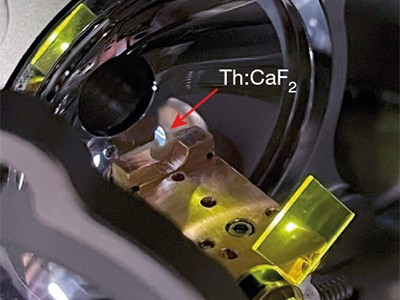Precise timekeeping helps us in our daily lives: from pinpointing your precise location with GPS to synchronising financial deals to the millisecond, and physicists are also seeking ever more accurate measurements of time, as super-accurate clocks could help make planet-sized telescopes, hunt for dark matter or even monitor the shape of the planet from the air.
Read the paper: Frequency ratio of the 229mTh nuclear isomeric transition and the 87Sr atomic clock
So researchers are working on a nuclear clock – a device that would harness the energy levels of the nucleus of an atom to act as a timekeeper.
Now, they’ve got closer than ever, by making extremely accurate measurements of the frequency of light required to push thorium nuclei into a higher energy state – potentially defining the tick of a future nuclear clock.
You Might Also Like
what we do and don’t know
We are 23 of the 27 original members of the Scientific Advisory Group for the Origins of Novel Pathogens (SAGO)...
Five ways increased militarization could change scientific careers
Ukrainian soldiers test drones in Donetsk, Febuary 2025.Credit: Serhii Mykhalchuk/Global Images Ukraine via GettyMilitary budgets are growing, especially in larger...
The integrated stress response promotes immune evasion through lipocalin 2
Cell linesThe KP cells used here were established previously66. Atf4 and Lcn2 knockout cell lines were generated by transient transfection...
How AI slop is causing a crisis in computer science
AI slop is flooding computer science journals and conferences.Credit: Quality Stock/AlamyFifty-four seconds. That’s how long it took Raphael Wimmer to...











